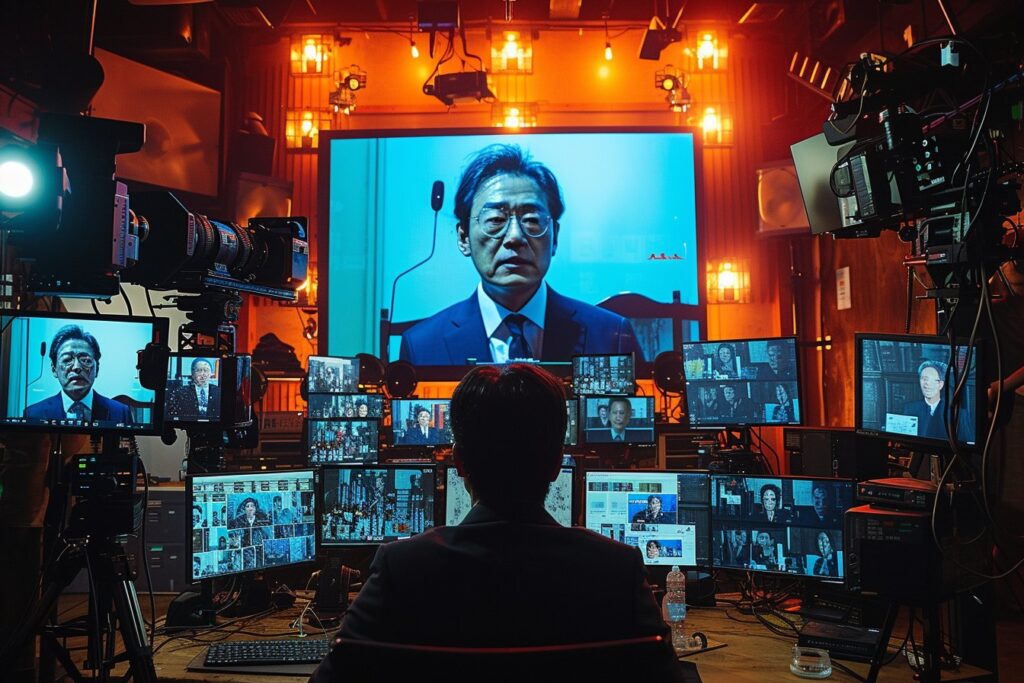The Rise of Deepfake Technology in South Korea’s Politics
As the approach to the legislative elections of 2024 heightens, South Korea has seen a surge in the use of artificial intelligence (AI) tools for election campaigns. The country’s politicians have begun employing deepfakes – fake audios and videos created using AI – as a way to manipulate public opinion on social media. This alarming trend comes in light of the expansion in the application of artificial intelligence to simulate political statements made by well-known personalities. This simulation can be so accurate that it becomes difficult to distinguish between real and manipulated content.
Electoral Commission Steps in to Regulate Deepfakes
- Politicians have been using deepfakes in their campaigns for the April legislative elections.
- In response to this rampant misuse, the electoral commission issued new regulations prohibiting the creation of any supporting or offensive content.
- However, if the deepfake serves as neutral documentation, it is granted permission.
To counter the widespread exploitation of deepfakes in politics, South Korea’s electoral commission stepped up to regulate its usage leading up to the 2024 elections. New guidelines were formulated to ban any misleading audios, images or videos produced by AI that may aid one candidate while defaming another. Nonetheless, exceptions are provided for certain deepfakes used solely as neutral documentation of a political party’s activities under specific circumstances, such as presidential campaigns or cases where candidates’ teams provide an explanation highlighting the AI-generated nature of the content.
Deepfakes Targeting Young Voters and Social Media
Its array of manipulative and misleading messages make deepfakes a substantial threat to the integrity of elections. Designed to be easily shareable on social media, these videos primarily target younger viewers who are more likely to spread the content and influence voter behavior. The implementation of new regulations seeks to prevent the manipulation of this demographic and safeguard South Korea’s democratic processes.
The 2022 Presidential Election: A Case Study
An example of deepfake usage in politics can be seen during the 2022 presidential election campaign, where candidate Ahn Cheol-soo employed his image extensively in fake videos aimed at young voters on social media platforms. Despite the intrinsic risks posed by artificial intelligence in manipulating public opinion, it was deemed legal at that time, thus prompting further regulation in the wake of its increasingly pervasive reach.
Mitigating the Threats: Regulation and Awareness
In order to curtail the potential hazards springing from AI-generated content, South Korea’s electoral commission has taken a proactive stance in implementing policies limiting its use. This regulatory step is crucial for maintaining trust in the electoral process and preventing the spread of false information.
Educating Voters about Deepfakes
Apart from the efforts made by the commission in curbing malicious applications of AI technology, society must also play a role in spreading awareness among voters regarding the existence and consequences of deepfakes. Public education initiatives should be undertaken to educate people on how to spot deepfakes, discern their realness, and avoid falling prey to misinformation campaigns.
Working with Social Media Platforms
Social media companies like Facebook, Twitter, and YouTube have an essential responsibility in deterring the dissemination of deepfake content through their services. Collaboration between governments, such as South Korea’s electoral commission, and these platforms must be strengthened to ensure the swift identification and removal of misleading content from their sites.
As South Korea braces itself for the impending legislative elections in 2024, swift action on regulating deepfakes in political campaigns has become an urgent priority. The electoral commission’s recent intervention highlights a growing concern surrounding the threats posed by AI-generated content. In moving forward, increased awareness among voters and cooperation between governments and responsible social media platforms are essential steps in protecting democracy and preserving the integrity of the electoral process.


